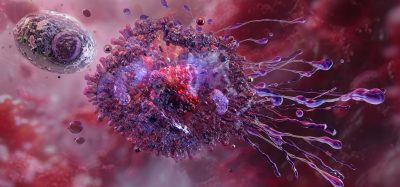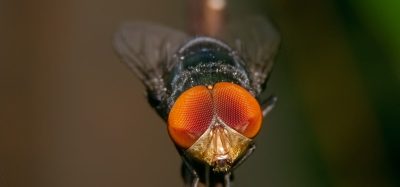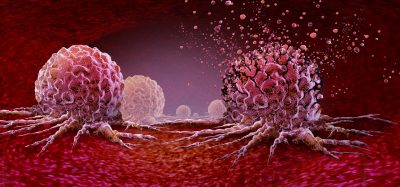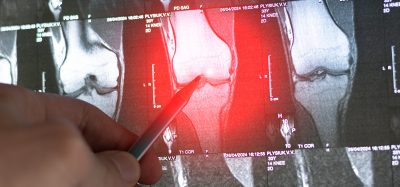A global push for better animal welfare in research
Posted: 13 June 2025 | Drug Target Review | No comments yet
What does ethical research look like in drug discovery today? In this interview, Charles River’s Executive Director of Global Animal Welfare shares how global standards, the 3Rs and her own path as a woman in STEM are shaping efforts to reduce animal use in science.


As biomedical research evolves, the responsibility to align scientific progress with ethical practice evolves too. Dr. Liz Nunamaker, Executive Director of Global Animal Welfare at Charles River, is leading efforts to embed welfare, integrity and the 3Rs – replacement, reduction and refinement – into the heart of drug discovery and development. In this interview, she discusses her career path, the challenges of global standards and the practical impact of applying the 3Rs across research settings.
Shaping a unique career in science and animal welfare
Dr. Liz Nunamaker’s career path has been far from conventional. Beginning with a degree in biomedical engineering, her passion for research and the ethical treatment of animals led her down a different path.
“I didn’t always want to be a vet,” she recalls. “I was good at maths and science and interested in medicine, so I pursued biomedical engineering. It was during my PhD that I got really into the trenches with animal models and began talking with lab animal vets. That sparked my interest in animal welfare and ethics.”
Biomarkers aren’t just supporting drug discovery – they’re driving it
FREE market report
From smarter trials to faster insights, this report unpacks the science, strategy and real-world impact behind the next generation of precision therapies.
What you’ll unlock:
- How biomarkers are guiding dose selection and early efficacy decisions in complex trials
- Why multi-omics, liquid biopsy and digital tools are redefining the discovery process
- What makes lab data regulatory-ready and why alignment matters from day one
Explore how biomarkers are shaping early drug development
Access the full report – it’s free!
It was during my PhD that I got really into the trenches with animal models and began talking with lab animal vets. That sparked my interest in animal welfare and ethics.
This pivotal moment prompted Liz to complete a degree in veterinary medicine, specialising in laboratory animal medicine. She spent over a decade as a clinical veterinarian, gaining hands-on experience and deepening her understanding of the complexities of animal welfare in research. This foundation has proven vital in her current leadership role at Charles River.
Today, her work has a global reach, focusing not only on advancing animal welfare but also on fostering a culture of care for staff, safeguarding scientific integrity and maintaining a commitment to openness and transparency. “If we don’t take good care of our people, they can’t take good care of the animals.”
Bridging global differences in animal welfare
With Charles River facilities across the globe, Liz frequently encounters the complexities of differences in animal care.
“There are a lot of differences between countries – even within countries,” she explains. “In Germany, for example, welfare laws can vary by state. It can be challenging, but also exciting, trying to align everyone when they’re starting from such different places.” Recognising these differences is essential – not just for compliance, but for building meaningful global standards. How animals are perceived and valued can shape everything from policy to daily practice, so understanding that variation is key to making real, lasting improvements in welfare.
Such diversity highlights the need for international collaboration, shared standards and open dialogue – elements that Liz and her team actively promote through training and partnerships.
Practical collaboration for real change
A key initiative Liz is passionate about is the promotion of low-stress handling techniques, particularly through her work with the 3Rs Collaborative. First developed in the UK, rodent tunnel handling has shown clear benefits in reducing stress and improving welfare outcomes.
By making it a focus of the 3Rs Collaborative, we’ve been able to expand the conversation globally.
“By making it a focus of the 3Rs Collaborative, we’ve been able to expand the conversation globally,” says Liz. “We’ve worked closely with NC3Rs to develop a training module, host workshops and support institutions in implementing this technique.”
This practical, training-led approach reflects the 3Rs’ growing influence in everyday research practices.
Moving the 3Rs to daily practice
The 3Rs have been part of the research conversation for decades, but Liz is focused on embedding them into institutional culture as guiding principles, not just a regulatory checkbox.
“The goal is to give people the confidence and the tools they need to integrate the 3Rs into their day-to-day in the vivarium,” she says.
One key initiative supporting this mission is the 3Rs Certificate Course, developed collaboratively to enhance understanding of how to practically apply each principle. The aim? To make the 3Rs not just known, but lived.
Complex challenges in reducing animal use
One of the most pressing issues Liz highlights is the misconception that animal testing can be eliminated entirely in the near future.
“Microphysiological systems and other non-animal models are incredibly promising, but they’re not a total replacement,” she cautions. “We need live models to validate and refine non-animal models. These systems work collaboratively together.”
She also notes the continued presence of sex bias in research, where male-derived tissues and animals are disproportionately used. This imbalance has led to real-world consequences, such as the reformulation of Ambien dosing after it was found to metabolise differently in women.
“That ultimately was a cause for animal wastage… because they ignored or weren’t cognisant of this sex bias in their data to begin with.” Such examples highlight how both science and ethics benefit when the industry embraces inclusive and balanced study designs.
Animal-free drug discovery
While cosmetics testing on animals is now illegal in the UK, drug discovery presents a far more complex challenge. Liz is optimistic but realistic.
“I don’t think we’ll ever be able to 100 percent get away from animals,” she says. “For now, we need all these models working together to ensure drug safety.”
She points to advancements in artificial intelligence (AI), computer modelling and organ-on-a-chip technologies as signs of progress.
Women in STEM: balancing ambition and timing
Liz’s career in science and medicine reflects both the obstacles and progress women face in STEM. She began in biomedical engineering in the 90’s, when women were significantly underrepresented. “I had classes where I was the only female. Even my PhD advisor – by the time I came along – had never had a female PhD student,” she recalls.
I had classes where I was the only female. Even my PhD advisor – by the time I came along – had never had a female PhD student.
Later, Liz pivoted into veterinary medicine, a profession that has become increasingly female-dominated in the US since 2009. But even in more balanced fields, the wider issues of gender equity remain – particularly when it comes to navigating career progression alongside personal life decisions. “Being a very driven woman and very career-focused, figuring out when to get married and have children became its own challenge,” she explains.
Advice for the next generation
Liz offers strong, practical advice to young women entering science: focus on your passion, work hard, and don’t be afraid to create your own opportunities.
“If you find something you’re truly passionate about, you won’t be afraid to work hard at it. The job market might not have your perfect role yet – but with focus and effort, you can help create it.”
If you find something you’re truly passionate about, you won’t be afraid to work hard at it.
Equally important, she says, is embracing change rather than fearing it. Change, in her experience, often opens doors rather than closes them. “Change represents opportunity. It lets you find a new path forward, break old habits and maybe even discover something you didn’t realise was possible.”
A growing momentum around the 3Rs
Looking to the future, Liz is energised by the increasing momentum around the 3Rs. New technologies, improved experimental design and refined pain management strategies are converging to reduce animal use and enhance their quality of life.
“There’s exciting work happening in each of the Rs,” she says. “We’re gradually decreasing the number of animals used but also improving their lived experience on study.” It’s clear that for Liz, animal welfare is more than a job – it’s a vocation of transforming research for the better, one innovation at a time.


Dr. Liz Nunamaker is a member of the global animal welfare team at Charles River and serves as President of the 3Rs collaborative, where she is focused on spreading rodent tunnel handling practices and developing a 3Rs certification programme for those working in animal research. She has a PhD in biomedical engineering from the University of Michigan and a DVM degree from Purdue University.
Dr. Nunamaker is double boarded by the American College of Laboratory Animal Medicine and the American College of Animal Welfare. Over the last 10 years, she has focused on the welfare of laboratory animal species and has authored numerous publications on this topic.
Related topics
Animal Models, Drug Development, Drug Discovery, Drug Discovery Processes, In Vivo, Organ-on-a-Chip, Training, Veterinary
Related organisations
Charles River Laboratories








